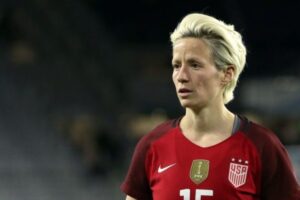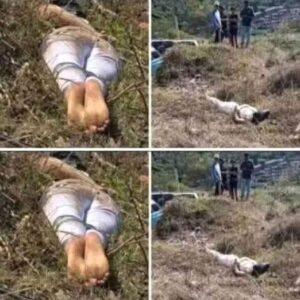Megan Rapinoe on Partnering With Play Proud to Make Soccer Safe for LGBT Youth
The out Olympian and World Cup winner spoke with The Advocate about the difference it makes to educate coaches and kids about LGBT acceptance.
When out Olympian and U.S. Women’s National Soccer Team World Cup winner Megan Rapinoe was growing up, there weren’t programs to help inform coaches and players about how to be more accepting of LGBT kids in sports. Now Rapinoe has thrown her support behind Play Proud, a global initiative powered by Street Football World that is designed to educate and train coaches about LGBT inclusivity and acceptance in soccer.
“I would have loved for, when I was a kid, for these things to even be talked about, or to even sort of have the space for them to live,” Rapinoe tells The Advocate. “Not only for the LGBTQ kids but for the straight kids as well, I think it’s really important to give them this information and this education so they know how to talk about things and they know the right way to make sure that it’s an inclusive environment.”
Play Proud launched an official crowdfunding campaign Tuesday to raise money to train and educate coaches in part through a digital toolkit that will offer resources around acceptance of LGBT kids on and off the field. The campaign, purposefully timed to tie in Pride Month with the World Cup, which kicks off next week, seeks to raise $100,000 to build its resources with information from “global experts, sports-based youth development organizations, LGBTQ+ advocacy groups and high-profile athletes,” according to the fundraising page. The organization will then develop its resources to be available and distributed for free to organizations that use “sport to engage youth.” Eventually, there will be a site dedicated to offering the educational materials Play Proud creates.”Today, 73% of people don’t believe team sports are safe and welcoming environments for LGBTQ+ youth, and more than 40% of LGBTQ+ youth believe their communities don’t accept them,” the Play Proud campaign page reads. “We can do better.
— came out publicly in 2012. And she’s aware of the difference the treatment of LGBT in sports can make in their lives and well-being, but not for the reasons one might think.She recalls casually tossing around derogatory terms when she was young, like calling something or someone “gay” as a slur, and she didn’t yet know that she was gay.
“Growing up, I didn’t really have sort of closeted feelings. I didn’t really know I was gay at that young of age,” Rapinoe says. “But you know, I said, ‘Oh, that’s gay,’ or language like that. That’s really not appropriate, and I think probably that if I’d had a little bit more information about it, I would have been more educated and not use those words.””Who knows who was around. Maybe there were other kids struggling with that and it sort of pushed them deeper into the closet. It took a while. It wasn’t until college that I started understanding who I really was and understanding how important language is and making sure that everyone feels safe and comfortable,” Rapinoe says. “You know, sports should be a place for everyone, and that’s kind of the way it’s set up, it’s this perfect meritocracy where you just come out and do your best and the best team wins, and that’s not always the case if kids don’t feel comfortable. So I just wish I had a little more information or it was talked about a little bit more, so I wouldn’t have said some of the dumb shit that I said.”
While the Play Proud campaign just kicked off, Rapinoe, who currently plays for the Seattle Reign, has gotten to know a few of the LGBT kids who stand to benefit from greater inclusion in her sport.
“Oftentimes it’s sort of half heartbreaking and half inspiring just to see kids that come from families that maybe aren’t accepting or communities that aren’t that accepting,” Rapinoe says of why she’s motivated to work with LGBT youth. “And to see just how strong they are and how much they’ve persevered, and so to see kids who at such a young age have so much confidence and really know who they are as they are kind of living their truth and trying to make the world a better place.”
When it comes to sports, the coaches are the mentors seeking to inspire and make a change for young people, so it makes sense that Play Proud tailors its resources to the people who interact most with the young athletes and who can help engender the most change.
“A lot of times I think these coaches are just doing the best they can. It’s [often] a volunteer position, and maybe they don’t have experience with LGBTQ kids. So this just gives them the sort of the necessary tools and information and education they need to kind of give these kids the best opportunity for them to grow and flourish and have the best experience they can in this sport,” Rapinoe says.


